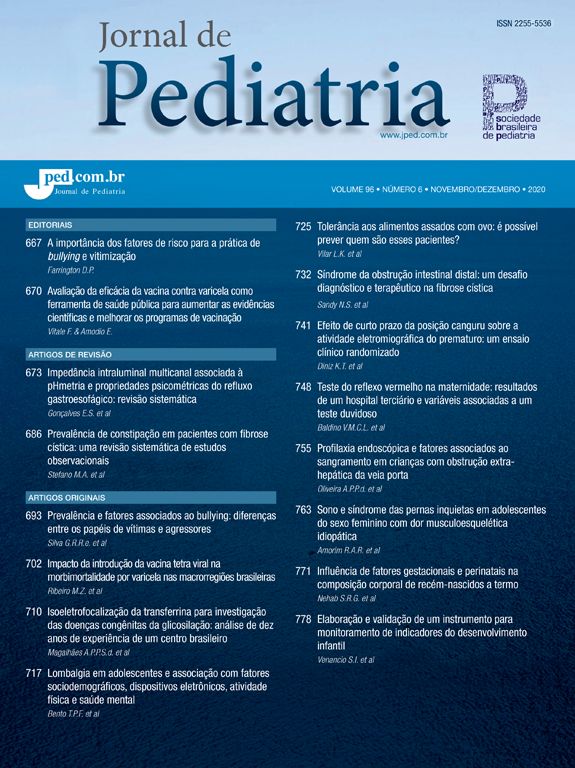the low degree of inflammation in obesity contributes to systemic metabolic dysfunction. Recent experimental studies proposed some effects of alteration in gut microbiota on inflammatory factors. This study aimed to assess the anti-inflammatory effects of a synbiotic supplement on inflammation markers in overweight and obese children and adolescents.
Methodsthis randomized triple-masked controlled trial was conducted among 70 participants aged 6 to 18 years, with a body mass index (BMI) equal or higher than the 85th percentile. They were randomly assigned into two groups of equal number to receive synbiotic or placebo for eight weeks.
Resultsfifty-six of 70 participants (80%) completed the study. Compared with the placebo group, the synbiotic group had significant decrease in mean values of tumor necrosis-α and interleukin-6, with significant increase in adiponectin; these changes were no longer significant after adjustment for BMI. There was no significant change in the mean values of high-sensitive C-reactive protein.
Conclusionthe present findings suggest the positive influence of synbiotic supplementation on inflammation factors, which are dependent to its effect on weight reduction in overweight and obese children.
o baixo grau de inflamação na obesidade contribui para disfunção metabólica sistêmica. Estudos experimentais recentes propuseram alguns efeitos de alteração na microbiota intestinal sobre fatores inflamatórios. O objetivo deste estudo foi avaliar os efeitos anti-inflamatórios de um suplemento simbiótico sobre marcadores de inflamação em crianças e adolescentes com sobrepeso e obesos.
Métodoseste ensaio clínico controlado randomizado triplo-cego foi conduzido entre 70 participantes com idade entre seis e 18 anos, com índice de massa corporal (IMC) igual ou acima do 85° percentil. Eles foram aleatoriamente divididos em dois grupos de igual número de participantes para receber simbiótico ou placebo por oito semanas.
Resultadosno todo, 56 de 70 participantes (80%) concluíram o estudo. Em comparação ao grupo placebo, o grupo simbiótico teve redução significativa nos valores médios de necrose tumoral-α e interleucina-6, com aumento significativo na adiponectina; essas alterações não eram mais expressivas após o ajuste do IMC. Não houve alteração impor- tante nos valores médios da proteína C-reativa altamente sensível.
Conclusãonossas conclusões sugerem a influência positiva da suplementação simbióti- ca sobre fatores inflamatórios, dependente de seu efeito sobre a redução de peso em crianças com sobrepeso e obesas.
Como citar este artigo: Kelishadi R, Farajian S, Safavi M, Mirlohi M, Hashemipour M. A randomized triple-masked controlled trial on the effects of synbiotics on inflammation markers in overweight children. J Pediatr (Rio J). 2014;90:161-8.










